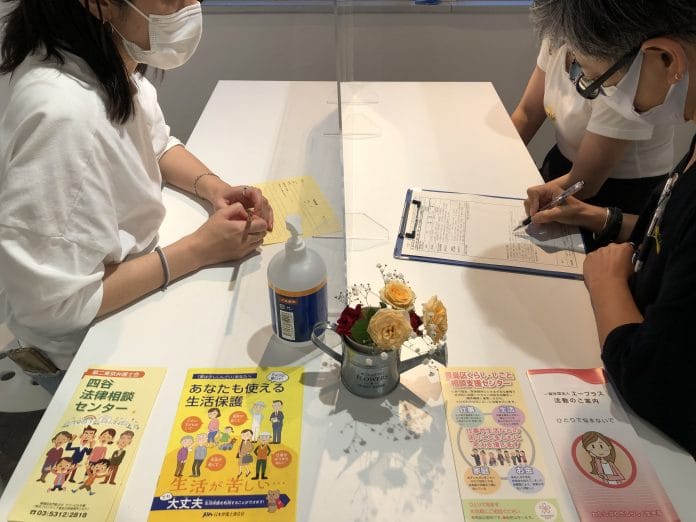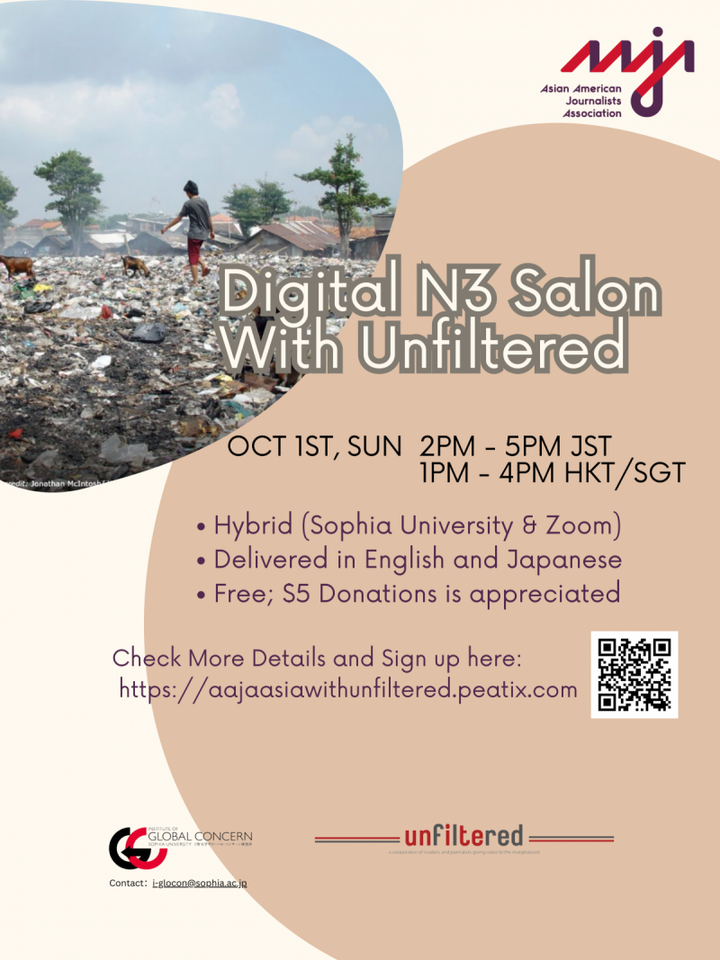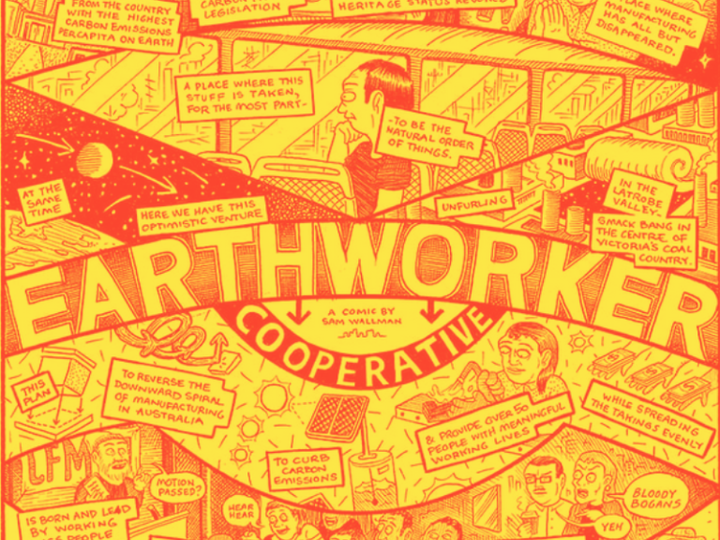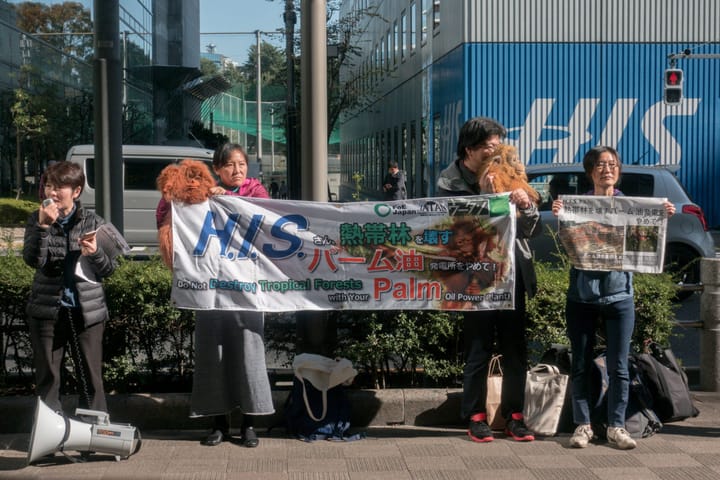Stemming the Shecession and Shadow Pandemic under COVID in Japan

The pandemic has pushed women even further to the margins in Japan, exposing the systemic discrimination, as well as the lack of appropriate public services, especially for struggling women.
The president and chief executive of the Institute for Women’s Policy Research, C. Nicole Mason coined the term “Shecession” to describe the gender-specific impact of the pandemic as even more women are forced out of the job market and into poverty. According to the Gender Equality Bureau of Japan’s Cabinet Office, some 740,000 women became unemployed, nearly double that of their male colleagues. Since November 2020, the employment rate has improved but remained below the pre-pandemic average, according to the Gender Equality Bureau of Japan’s Cabinet Office.
In May, Japan’s parliament passed a new law to support women faced with difficulties, to be enacted in April 2024. However, some experts and activists say they remain skeptical over how the law will be implemented.
Women make up the majority of the part-time and casual workforce in Japan, a group particularly hard hit by the prolonged state of emergency orders as the government tried to contain the spread of the virus. Restaurants and retail establishments, where most part-time jobs exist, drastically cut hours or shut down.

To extend support to their counterparts struggling in the pandemic, a group of women – lawyers, labor organizers and civil society activists – came together to provide free consultation services and relief, such as fresh produce and sanitary napkins, at “Consultation for Women, by Women” events in Tokyo, held periodically since March 2021 to July of this year. In total, more than 700 women came over five sessions.
Violence against women
According to the organizers, many attendees have survived child abuse, domestic violence, sexual assault, stalking and other forms of violence often resulting in mental illnesses, which make it difficult to hold long-term steady jobs. As abusers often isolate victims in order to make them more dependent and controllable, abused women talked about a lack of confidence in building interpersonal relationships.
Suicide rates among women soared by 15.3%, while suicide among men declined, compared to the year before, according to the government white paper published in November.
Violence against women often accompanies poverty, mental illness or a lack of choices in life. UN Women, the United Nations entity dedicated to gender equality and empowerment, revealed in a report released in November 2021 that one in two women across the globe suffer from some form of violence. They called the phenomenon the Shadow Pandemic.
Moreover, public services may not be as accessible to them due to physical and psychological obstacles. With responsibilities ranging from house chores and childcare to caregiving for their own parents and the inlaws, women need to squeeze time out of their busy schedule to seek care for themselves.
Even when they are able to access services or support, they are often discouraged due to the gender discrimination they experienced at public offices.
The newly established law may be one step forward, but more systemic, cultural and societal changes are needed besides the law.
Starvation during the pandemic ・・・Sachiko’s case
Sachiko in her 30s feared she might be kicked out of her apartment in mid-March last year as she had not been able to pay any rent for two months. As a temporary worker, the administrative clerk was able to keep her job for a year through regular renewal of her three-month contract. She hoped to renew for a maximum of two years, but the company opted to replace her with a full-time employee citing Corona-induced business decline as the reason.

Sachiko then landed a handful of temporary day jobs working at call centers or with event organizers. Eventually, though, even these became scarce.
“I didn’t know how much more I could keep going,” Sachiko said. “The thought of dying from starvation crossed my mind. I am relatively healthy, and I could work if I could find a job. Without it, I may end up dead, and I figured it would be my own fault.”
Even though she tried to save money by eating only bean sprouts for an entire month and cabbage for another, she soon realized there was no way she could survive without a job.
When Sachiko came to the “Consultation for Women, by Women” in mid-March, she had 3,000 yen and some change in her hands.
Her father’s death
Sachiko once pursued a degree in chemistry at university but was deprived of educational opportunities by her abusive stepmother, who ordered her to start working after finishing high school. Beatings and regular training to sit seiza, with her legs folded under her, on a hardwood floor in the name of discipline, were routine, she said. In addition, she was molested by her father, as well as being targeted by train gropers and stalkers.
When Sachiko’s father died suddenly of an illness, she said, “To be honest, I was relieved. At least there was no one who was violent anymore, so I felt a little better. Generally speaking, parents are scary and kind at the same time, but I’ve never been treated kindly since I was a little girl.”
She regrets not leaving home sooner, blaming herself for being too weak to do so.
“Every day,” she said, “I’d only think of negative things, like wishing I had never been born or wishing it had never happened. If I had been able to escape from home, I would have lived a different life.”
Sachiko registered with a temp agency for full-time work after her father died, but as a high school graduate with no special skills, the hourly wage was the same as a part-time job.
Nevertheless, she was eager and spared no effort in learning new skills. Her wage increased from the minimum wage to 1,300 yen for learning Excel and 1,600 yen for learning English.
However, she soon hit a ceiling and was laid off from the higher paying work due to the spread of the Coronavirus. She was left to find day jobs.
“I never thought I would be unemployed for so long,” Sachiko said. Although she never felt right about applying for social welfare, that seems to be the only option left for her.
Still, Sachiko is determined to advance her skills by enrolling in the training course provided by the government so she can leave welfare as soon as possible.
Sachiko’s eyes light up at the prospect.
“I am confident now,” she says, “that I see more options in life. I’m glad I pushed myself to come to the consultation for women.”
Where to seek help ・・・Fuyutsuki’s case
On Dec. 29, 2020, Fuyutsuki found herself at the consultation table in Shinjuku Ward, Tokyo. With her bag under her arms and her eyes downcast, the woman, in her 40s, began to talk about how she had less than 20,000 yen in her pocket.
“I lost my job in the summer and my unemployment insurance ran out in November,” she said.

She has been looking for a job that pays daily wages, but the pandemic has left her with no hope. She had avoided being evicted from her apartment, thanks to the Housing Security Benefit issued by the government during the pandemic. But that was about to expire.
At first, she hesitated to apply for the program, saying, “As long as I have a job, I can manage,” but she decided she needed to prioritize stabilizing her life. At the end of the year, she applied for welfare assistance. “The payments started in January, but I hate it,” Fuyutsuki said.
Distrusting adults
She grew up enduring verbal and physical abuse from her mother who often yelled, hit and kicked her on a daily basis. Her father would only help her mother heap on the abuse.
“I know now that support groups like Colabo exist,” she says, “but I didn’t know where to ask for help when I suffered my mother’s abuse in elementary school.”
Even if she knew there was a child guidance center, she didn’t know where it was or didn’t have the money to call for help from a payphone.”
School offered no better place. She was bullied, and her teacher called her a ‘weirdo’ rather than standing up for her.
“My mother and teachers kept telling me, ‘You are worthless,’” she said. “Even if I wanted to ask for help, I had to ask these adults whom I never trusted.”
She left her parents’ home at age 20 and ended up working at a cabaret club — a job that offered housing. Expenses such as utilities and rent were deducted from her salary, and everything she needed for work, such as costumes and makeup, she had to pay for.
“I was happy to finally be free,” Fuyutsuki said. “But that was short-lived, I realized I had underestimated the responsibilities of independent living.”
She registered with a temporary employment agency and worked in warehouses handling shampoo and coloring agents, assembling cosmetic boxes, and other factory jobs for 9,000 yen a day, a standard wage for day jobs.
“I don’t know if it was because of this work or not,” Futsuyuki says, “but I was diagnosed with multiple chemical sensitivity two years ago.”
This chronic illness is common among low-wage factory workers, the synthetic fragrances in fabric softeners, aromas and perfumes made her feel ill. Due to symptoms, she often had to take too many days off from work. The two-month renewal contract was shortened to one month and finally wasn’t offered again.”
Unemployment benefit expires
Fortunately, she was able to get by on unemployment insurance for three months, but with only 80,000 yen a month, life became even more difficult. The unemployment insurance also expired in November last year.
“The unemployment insurance cutoff blindsided me,” she says.
Being able to continue living in her apartment spared her a little more time and peace of mind. She can finally look forward to fulfilling her dream of becoming an illustrator.
Even so, at the end of the year, Futsuyuki was left feeling ashamed as she had to rely on government assistance. A friend from her days working at the cabaret club, however, stood by her.
“It was her positive words that made me think maybe I’m not such a bad person after all,” says Futsuyuki. “She freed me from the spell of my mother’s and teacher’s words. Now, I am hoping that I can help other women like how I was treated at the consultation session. I’m determined to carve my path.”
Begging to get by ・・・Megumi’s case
It was just two years ago that Megumi came to Tokyo from Kansai by bus. She was feeling depressed and looking for a fresh start. The 30,000 yen she borrowed was just enough to cover the bus ride, two nights in an internet cafe, and a few hours of pachinko (Japanese pinball game).
Megumi picked up her old gig as a “tachimbo,” a woman standing on the streets of the Kabukicho entertainment district, waiting for customers while sleeping at Internet cafes.
The couple of months she originally planned to stay turned into two years. Life in Kabukicho was going OK until an influx of youth migrated to Tokyo in search of work and ner already tenuous income in the nightlife industry fell by two-thirds. The world’s third most expensive city became even harder for a woman in her 50s to earn enough to get by as the pandemic spread.

In torrential rain or illness, Megumi scraped together work in the street corner of Kabukicho to afford her stay in the internet cafe. Luckily, she had built a network of people who offered support in times of need. Without a bank account, this kindness and community has been a saving grace.
The road to mizushōbai
In her first year of high school, Megumi was suspended after she was caught smoking. Later expelled for going to a video game arcade, she pretended to go to school for nearly six months until she was caught by her grandmother.
At the age of 19, she registered with a temporary employment agency and worked at plastic and candy factories in a rural area for several months at a time. However, when Megumi and a friend pointed out the exploitation of middlemen by the dispatch company, their contracts were terminated. She managed to later find a full-time job at a fast food restaurant and soon was happily engaged to marry.
Her joy was short-lived, however, when her mother insisted on moving in with Megumi and her fiance in their new, smaller apartment. When the engagement was broken off, Megumi ran away.
It took no time for Megumi to use up her savings and get into the mizushobai or nighttime “entertainment” business. She began working at a company offering “Delivery Health” services, which translates as providing sexual services at clients’ homes. She was happier there than at home where her mother and stepfather were constantly asking her if she was going to beg for money from them again.
For women across the entertainment industries, particularly those working to provide sexual services at hostess clubs, snack bars, or similar businesses, the economic impact of the pandemic hit particularly hard.
Applying for welfare
Megumi never expected she would be the one applying for social welfare at the end of 2020, when she accompanied her friend to another consultation meeting for the people struggling during the pandemic. With the help of a civil society member, she qualified in a week.
With government assistance, Megumi started going to the clinics she had avoided the past 30 years. Starting with gynecology, she has been receiving weekly checkups and treatments from dentists, internists, and orthopedists.
“If I had stayed off welfare, I’m sure I would have been evicted in no time as I’d failed to pay my rent or would have been caught by the police,” Megumi said. “When I got caught by the police last year, they asked me if I was doing this business for fun or for a living. I told them, ‘It may be a crime, but I’ve got to do this to survive.’”
Megumi is no longer anxious about whether she can stay warm and get some food the next day, which gives her a sense of comfort and encourages her to try her hand at sewing, something she enjoyed before things got out of control.
“It’s a relief to have a place to live,” Megumi said. “Even though I’ve been underwater for almost 20 years, I am finally crawling from the bottom.”
The law, which is set to go into effect in two years, is designed to improve women’s welfare through collaboration between public- and private-sector support.
Civil society groups that have helped struggling women see it as a significant step forward as such a law previously available was to prevent women who ran away from home or any other circumstances due to sexual abuse, exploitation or hardships from going into prostitution.
The 1956 law subjected women to punishment rather than abusers or failed to mend the cause of the problem.
Rather than laying the blame on troubled women, they need more initiatives like the consultation meetings where they can be empowered and encouraged.
“Consultation for Women, by Women” has spread to Kobe, Nagano, and next to Yokohama, which is scheduled for Oct. 29, 2022.
※Women’s names have been changed to protect their privacy.
※The individual detailed stories of three women above are available in Japanese here:
“Consultation for Women, by Women” is run solely on donations.
Postal Bank Account (Yucho Ginko)
- 【From postal bank account】10910 (Kigo), 26983671 (Bango)
- 【From other bank accounts】098 or Zerokyuhachi (Branch name), 2698367 (Account number), Futsu koza account


